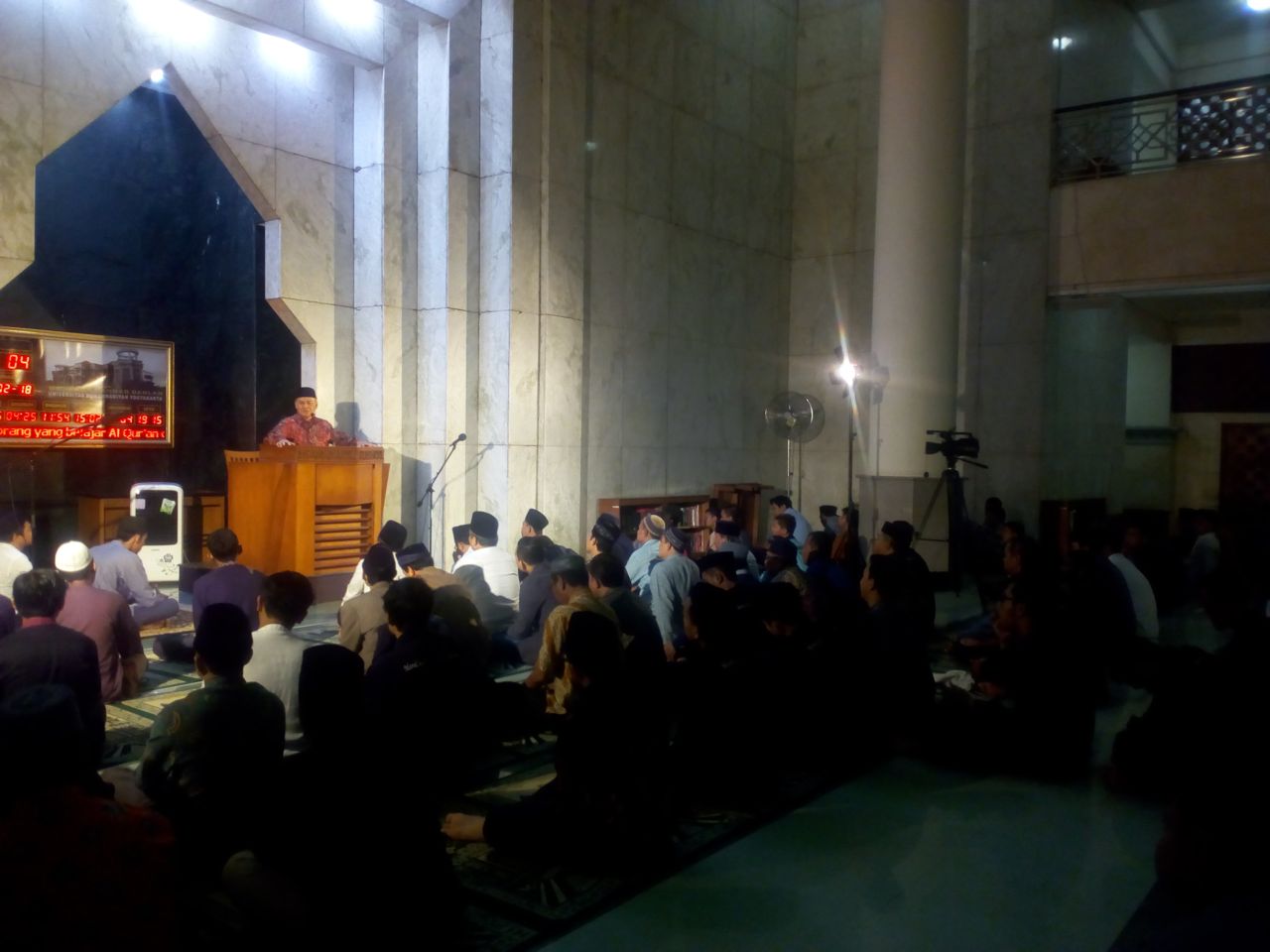A need of social media has recently increased and been inevitable. People can access information from the social media wherever and whenever they are. Vice Rector of Student, Alumni, and Muhammdiyah Movement Affairs of Universitas Muhammadiyah Yogyakarta (UMY) Hilman Latief, M.A., Ph.D. stated that social media can bring destructive effects.
“Social media sometimes can drive distance fade away, but sometimes what is near gets invisible. Therefore, fiqh should discuss not only existing debatable issues but also social media,” declared Hilman in the Dawn Prayer in Congregation and Saturday Morning Sermon on ‘The Use of Social Media Based on Islamic Teaching’ on Saturday (24/2) at Masjid K.H. Ahmad Dahlan of UMY.
Moreover, Chairperson of Muhammadiyah Library and Information Division Prof. Dr. Dadang Kahmad, M.Si. told that direct communication reduces even though they have a face-to-face meeting. Data showed that 50 percent of children learn religion teaching from social media. He agreed with Hilman that fiqh about social media should exist to manage how Muslims utilize social media as Islamic teaching. “For instance, children should be controlled when they play and use social media,” he said.
Dadang mentioned that active social media users should hold three principles, namely doing what is right, behaving equally, and making friends with good people. “The most important thing is that we have to be cautious about our statements since an injury by a sword can be cured, but a wound by our statement cannot easily be healed,” he emphasized.
Dadang maintained that the recent hottest issue in Indonesia is dealing with attitudes. Many individuals possess a great creed (aqidah) and worship, but misbehave. Thus, it is not surprising when a lot of figures break law.
Dadang believed that having good morals (akhlak) can begin from mingling with people who behave well, are gentle, speak politely, and are generous. “For instance, you sit next to someone and you both remain silent for long time, great him first. Besides, if you make a mistake, apologize. These are quite good nowadays,” he advised.
Dadang also expected that all people, particularly academicians, would not disseminate information hastily. “We have to be cautious when reposting information on social media, particularly if the information is not from trusted resources. It will cause chaos in our community and you will be responsible for it during your life and here after,” he ended.







